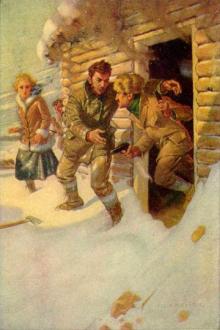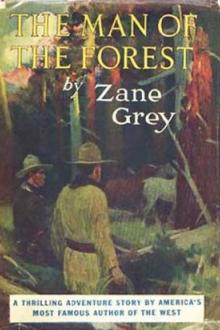Astoria; Or, Anecdotes of an Enterprise Beyond the Rocky Mountains by Irving (top romance novels .TXT) 📗

- Author: Irving
Book online «Astoria; Or, Anecdotes of an Enterprise Beyond the Rocky Mountains by Irving (top romance novels .TXT) 📗». Author Irving
Here is the great fishing place of the Columbia. In the spring of the year, when the water is high, the salmon ascend the river in incredible numbers. As they pass through this narrow strait, the Indians, standing on the rocks, or on the end of wooden stages projecting from the banks, scoop them up with small nets distended on hoops and attached to long handles, and cast them on the shore.
They are then cured and packed in a peculiar manner. After having been opened and disemboweled, they are exposed to the sun on scaffolds erected on the river banks. When sufficiently dry, they are pounded fine between two stones, pressed into the smallest compass, and packed in baskets or bales of grass matting, about two feet long and one in diameter, lined with the cured skin of a salmon. The top is likewise covered with fish skins, secured by cords passing through holes in the edge of the basket. Packages are then made, each containing twelve of these bales, seven at bottom, five at top, pressed close to each other, with the corded side upward, wrapped in mats and corded. These are placed in dry situations, and again covered with matting. Each of these packages contains from ninety to a hundred pounds of dried fish, which in this state will keep sound for several years.**
**(Lewis and Clarke, vol. ii. p. 32.)We have given this process at some length, as furnished by the first explorers, because it marks a practiced ingenuity in preparing articles of traffic for a market, seldom seen among our aboriginals. For like reason we would make especial mention of the village of Wishram, at the head of the Long Narrows, as being a solitary instance of an aboriginal trading mart, or emporium. Here the salmon caught in the neighboring rapids were “warehoused,” to await customers. Hither the tribes from the mouth of the Columbia repaired with the fish of the sea-coast, the roots, berries, and especially the wappatoo, gathered in the lower parts of the river, together with goods and trinkets obtained from the ships which casually visit the coast. Hither also the tribes from the Rocky Mountains brought down horses, bear-grass, quamash, and other commodities of the interior. The merchant fishermen at the falls acted as middlemen or factors, and passed the objects of traffic, as it were, cross-handed; trading away part of the wares received from the mountain tribes to those of the rivers and plains, and vice versa: their packages of pounded salmon entered largely into the system of barter, and being carried off in opposite directions, found their way to the savage hunting camps far in the interior, and to the casual white traders who touched upon the coast.
We have already noticed certain contrarieties of character between the Indian tribes, produced by their diet and mode of life; and nowhere are they more apparent than about the falls of the Columbia. The Indians of this great fishing mart are represented by the earliest explorers as sleeker and fatter, but less hardy and active, than the tribes of the mountains and prairies, who live by hunting, or of the upper parts of the river, where fish is scanty, and the inhabitants must eke out their subsistence by digging roots or chasing the deer. Indeed, whenever an Indian of the upper country is too lazy to hunt, yet is fond of good living, he repairs to the falls, to live in abundance without labor.
“By such worthless dogs as these,” says an honest trader in his journal, which now lies before us, “by such worthless dogs as these are these noted fishing-places peopled, which, like our great cities, may with propriety be called the headquarters of vitiated principles.”
The habits of trade and the avidity of gain have their corrupting effects even in the wilderness, as may be instanced in the members of this aboriginal emporium; for the same journalist denounces them as “saucy, impudent rascals, who will steal when they can, and pillage whenever a weak party falls in their power.”
That he does not belie them will be evidenced hereafter, when we have occasion again to touch at Wishram and navigate the rapids. In the present instance the travellers effected the laborious ascent of this part of the river, with all its various portages, without molestation, and once more launched away in smooth water above the high falls.
The two parties continued together, without material impediment, for three or four hundred miles further up the Columbia; Mr. Thompson appearing to take great interest in the success of Mr. Stuart, and pointing out places favorable, as he said, to the establishment of his contemplated trading post.
Mr. Stuart, who distrusted his sincerity, at length pretended to adopt his advice, and, taking leave of him, remained as if to establish himself, while the other proceeded on his course towards the mountains. No sooner, however, had he fairly departed than Mr. Stuart again pushed forward, under guidance of the two Indians, nor did he stop until he had arrived within about one hundred and forty miles of the Spokan River, which he considered near enough to keep the rival establishment in check. The place which he pitched upon for his trading post was a point of land about three miles in length and two in breadth, formed by the junction of the Oakinagan with the Columbia. The former is a river which has its source in a considerable lake about one hundred and fifty miles west of the point of junction. The two rivers, about the place of their confluence, are bordered by immense prairies covered with herbage, but destitute of trees. The point itself was ornamented with wild flowers of every hue, in which innumerable humming-birds were “banqueting nearly the livelong day.”
The situation of this point appeared to be well adapted for a trading post. The climate was salubrious, the soil fertile, the rivers well stocked with fish, the natives peaceable and friendly. There were easy communications with the interior by the upper waters of the Columbia and the lateral stream of the Oakinagan, while the downward current of the Columbia furnished a highway to Astoria.
Availing himself, therefore, of the driftwood which had collected in quantities in the neighboring bends of the river, Mr. Stuart and his men set to work to erect a house, which in a little while was sufficiently completed for their residence; and thus was established the first interior post of the company. We will now return to notice the progress of affairs at the mouth of the Columbia.
CHAPTER XI. Alarm at Astoria.—Rumor of Indian Hostilities.— Preparations for Defense.—Tragic Fate of the Tonquin.
THE sailing of the Tonquin, and the departure of Mr. David Stuart and his detachment, had produced a striking effect on affairs at Astoria. The natives who had swarmed about the place began immediately to drop off, until at length not an Indian was to be seen. This, at first, was attributed to the want of peltries with which to trade; but in a little while the mystery was explained in a more alarming manner. A conspiracy was said to be on foot among the neighboring tribes to make a combined attack upon the white men, now that they were so reduced in number. For this purpose there had been a gathering of warriors in a neighboring bay, under pretext of fishing for sturgeon; and fleets of canoes were expected





Comments (0)